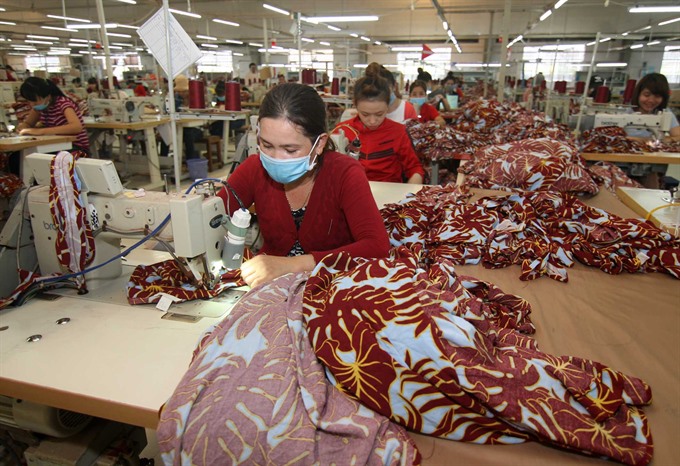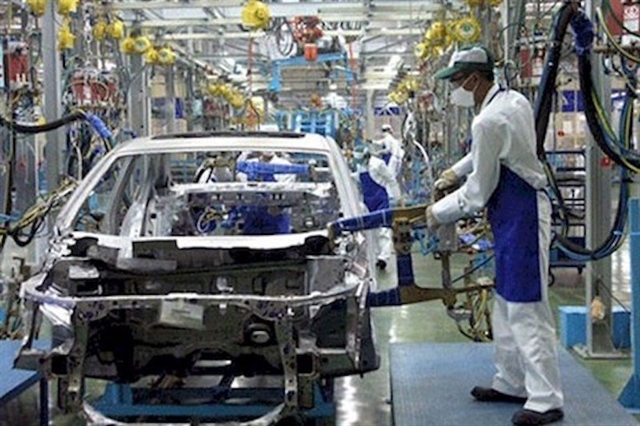 Society
Society

Human resource training needs to focus on creativity and soft skills and foster gender equality to meet the high demands imposed by the fourth industrial revolution, the rector of the HCM City University of Social Sciences and Humanities has said.
 |
| Female workers of An Hưng Phú Yên Garment Joint Stock Company, Tuy Hòa City in the central province of Phú Yên. Experts discuss measures to improve the quality of human resources to meet the demands of industry 4.0 at a seminar held in HCM City on Friday. — VNA/VNS Photo Vũ Sinh |
HCM CITY — Human resource training needs to foster gender equality to meet the high demands imposed by the fourth industrial revolution, the rector of the HCM City University of Social Sciences and Humanities has said.
Speaking at a seminar on improving training on Friday Ngô Thị Phương Lan said industry 4.0 “requires the training process to provide knowledge of science and technology and also promote creativity in these fields.”
Industry 4.0 would see rapid development in the field of science and technology, which usually has a preponderance of men, she said.
“If we do not remove barriers and allow women to access and catch up with scientific and technological achievements, their presence and quality of human resources in industry 4.0 will be very low.”
Trương Thị Hiền, head of the city Association for Intellectual Women, said advancement of women is a key objective and one of requirements for the country’s modernisation and industrialisation in line with global development trends.
More than 50 per cent of the population comprises women, who participate in social and political activities, work in almost all socio-economic fields and holding important positions in the Party, State and army, she said.
More actions and policies are necessary to promote gender equality and women’s empowerment, she said.
Women need to acquire more knowledge and make constant efforts to fight gender inequality and achieve their goals, contributing to their family and country’s development.
Researcher Nguyễn Thị Vân Hạnh said the practical reality shows that women don’t have the skills and knowledge to meet the requirements of future jobs.
A study by the World Economic Forum in 2016 predicted women would face competition not only from men but also robots and artificial intelligence (AI).
Around 99 per cent of jobs will be automated in the next 20 years, including that of librarians, tele-marketers, data-entry workers, freight forwarders, bankers, accountants, sales staff, and cashiers.
Some 86 per cent of workers in Việt Nam’s textile and footwear industries are at high risk of losing their jobs because of the influence of technological disruption caused by industry 4.0, according to the International Labor Organization.
A study by the Institute for Spatial Economic Analysis in 2017 predicted that women’s risk of losing jobs due to automation is twice as high as that of men.
It is estimated that 5 per cent of administrative jobs -- 75 per cent of which are currently done by women -- will disappear by 2020 because of robotics and automation.
Hạnh said, “Education is a decisive factor for future employment opportunities in the digital manufacturing age.”
Meanwhile, globally, women and girls have less opportunity for education than men, she said.
In Việt Nam the number of girls in STEM (science, technology, engineering, and math) streams remains low mostly due to social and environmental factors, she said.
To overcome these challenges, women need to be empowered to equip themselves with the knowledge and skills required to advance in fields like automation, she added. — VNS









